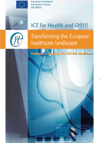Digitised clinical noting at South Tees Hospitals NHS Foundation Trust is creating efficiencies for busy doctors and nurses. The trust’s CCIO Dr Andrew Adair, deputy CCIO Dr John Greenaway, and...
A study led by UCLA investigators shows that artificial intelligence (AI) could play a key role in improving treatment outcomes for men with prostate cancer by helping physicians determine who...
A new study published in Multiple Sclerosis and Related Disorders highlights the potential of More Stamina, a gamified mobile health (mHealth) app designed to help people with Multiple Sclerosis (MS)...
The Highland Marketing advisory board met to consider the government's enthusiasm for AI. To date, healthcare has mostly experimented with decision support tools, and their impact on the NHS and...
Existing research indicates that the accuracy of a Parkinson's disease diagnosis hovers between 55% and 78% in the first five years of assessment. That's partly because Parkinson's sibling movement disorders...
University of Virginia School of Medicine scientists have created a computational tool to accelerate the development of new disease treatments. The tool goes beyond current artificial intelligence (AI) approaches by...
8 - 10 April 2025, Berlin, Germany.
Digitalization is considered one of the key strategies for addressing the shortage of skilled workers - but the digital health sector also needs qualified...
Dartmouth researchers conducted the first clinical trial of a therapy chatbot powered by generative AI and found that the software resulted in significant improvements in participants' symptoms, according to results...
Assistive artificial intelligence technologies hold significant promise for transforming health care by aiding physicians in diagnosing, managing, and treating patients. However, the current trend of assistive AI implementation could actually...
DeepSeek is an artificial intelligence (AI) platform built on deep learning and natural language processing (NLP) technologies. Its core products include the DeepSeek-R1 and DeepSeek-V3 models. Leveraging an efficient Mixture...
Stepping Hill Hospital, part of Stockport NHS Foundation Trust, has replaced its bedside units with state-of-the art devices running a full range of information, engagement, communications and productivity apps, to...
8 - 10 April 2025, Berlin, Germany.
From the AI Act, to the potential of the European Health Data Space, to the power of patient data in Scandinavia - DMEA 2025...
 This strategy brochure explores the potential of Information and Communication Technologies for Health and the need for a new landscape in European healthcare.
This strategy brochure explores the potential of Information and Communication Technologies for Health and the need for a new landscape in European healthcare.